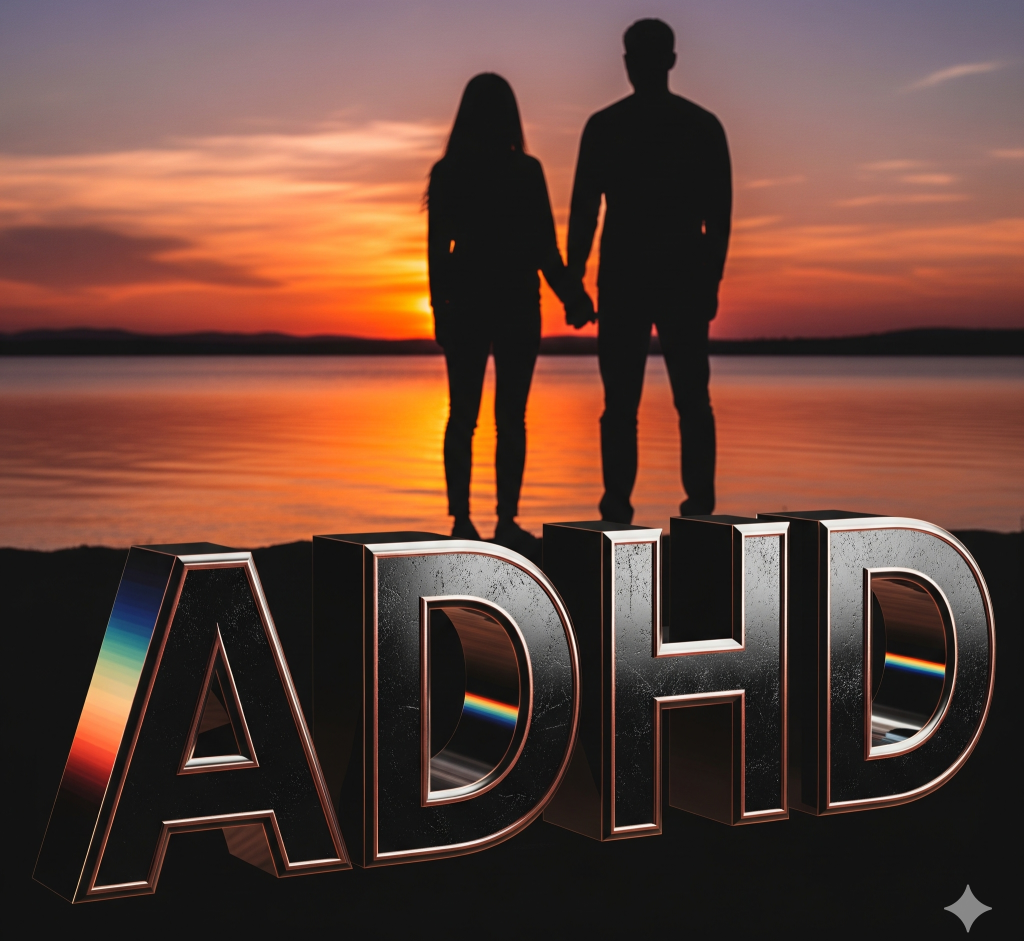Adult ADHD and Relationships
Understanding Adult ADHD
ADHD affects adults as much as children, often interfering with daily functioning, career performance, and relationships. Adults with ADHD frequently struggle with time management, organisation, focus, and emotional regulation. These challenges can feel overwhelming, especially as life responsibilities increase, but with the right support, strategies, and mindset, ADHD can be managed effectively.

How ADHD Impacts Daily Life
Adults with ADHD may experience:
Difficulty concentrating on mundane or repetitive tasks.
Frequent forgetfulness, disorganization, and lost items.
Impulsive decisions or actions that affect finances, work, or relationships.
Emotional sensitivity, irritability, or mood swings.
Periods of hyperfocus where attention becomes absorbed in stimulating tasks, sometimes neglecting responsibilities.
These symptoms often cause stress, frustration, and feelings of underachievement, but they can also coincide with creativity, energy, and innovative thinking.
ADHD in Women
Women often exhibit ADHD differently than men, with symptoms primarily of inattention rather than hyperactivity or impulsivity. Women may:
Misplace items, forget appointments, or run late frequently.
Overcompensate by overworking or striving for perfection.
Mask symptoms to meet social expectations.
Experience co-occurring anxiety or depression.
Hormonal changes during menstrual cycles, pregnancy, and menopause can intensify symptoms, affecting mood, focus, and stress management.


ADHD and Relationships
ADHD can challenge relationships in numerous ways:
Communication difficulties and frequent misunderstandings.
Emotional reactions that escalate conflicts.
One partner taking on more responsibility for household or parenting tasks.
Strain in professional and family roles due to organizational challenges.
Couples and families benefit from structured strategies, clear communication, and mutual understanding.
Symptoms by Category
Inattention: Difficulty sustaining focus, disorganization, frequent distractions, forgetfulness, poor listening skills, and alternating between inattention and hyperfocus.
Hyperactivity: Inner restlessness, agitation, racing thoughts, boredom, craving stimulation, talking excessively, and difficulty sitting still.
Impulsivity: Acting without considering consequences, interrupting others, poor self-control, and engaging in risky behaviors.
Emotional Dysregulation: Mood swings, irritability, hypersensitivity to criticism, and difficulty managing stress.


Managing ADHD Symptoms
Exercise & Mindfulness: Regular physical activity and mindfulness meditation improve focus, regulate mood, and manage impulsivity.
Nutrition: Balanced diets with fruits, vegetables, protein, and whole grains stabilize energy and attention; reducing sugar and caffeine helps maintain mood and concentration.
Organization & Time Management: Break tasks into manageable steps, declutter gradually, use planners and reminder apps, and prioritize tasks to manage responsibilities effectively.
Sleep: Establish consistent routines, reduce screen time before bed, and maintain a calm sleep environment to improve cognitive functioning and emotional regulation.
Workplace Strategies: Minimize distractions, divide projects into smaller tasks, use checklists, and take regular breaks to stay productive and focused.
Relationship Support: Communicate openly about ADHD challenges, divide responsibilities according to strengths, and manage emotions proactively to maintain healthy connections.
Parenting Support: Schedule one-on-one time, set consistent rules, manage emotional responses, and share duties with partners or support networks.
Treatment Options
Professional support may include behavioral coaching, cognitive-behavioral therapy, counseling, and educational assistance. Treatments are tailored to individual needs, life stage, and symptom patterns.
When to Seek Professional Help
Seek professional guidance if ADHD symptoms continue to interfere with daily functioning despite self-help efforts. Expert support can help you:
Regulate emotions and reduce impulsivity.
Improve organization and time management.
Enhance productivity at home and work.
Strengthen communication and relationships.
Integrate ADHD management into all aspects of life.

Begin Your Journey
If ADHD resonates with your experiences or impacts your relationships, reaching out for professional support is the first step toward clarity, stability, and personal growth. At Singapore Counselling, we offer specialized, empathetic guidance to help you manage ADHD, harness your strengths, and achieve a balanced and fulfilling life.
Singapore Counselling — where understanding leads to meaningful change.